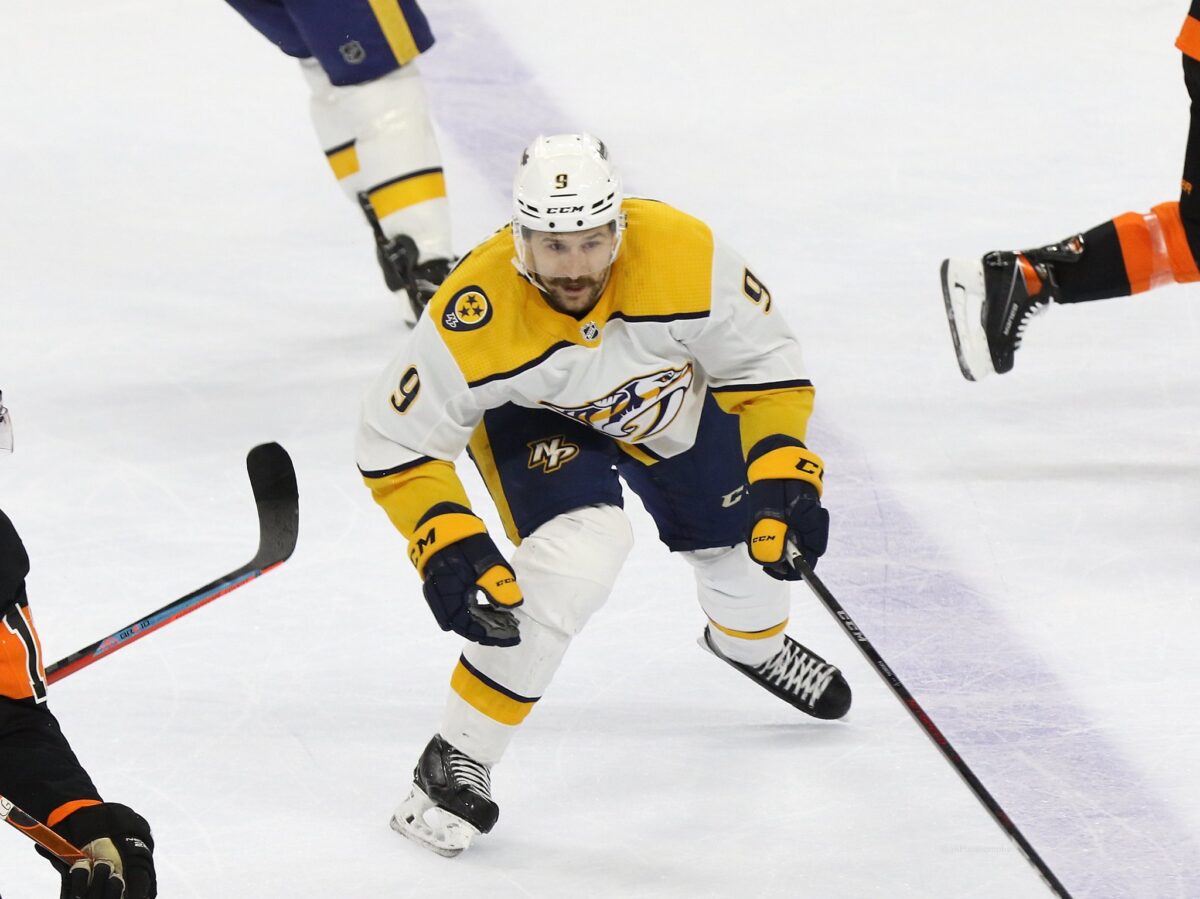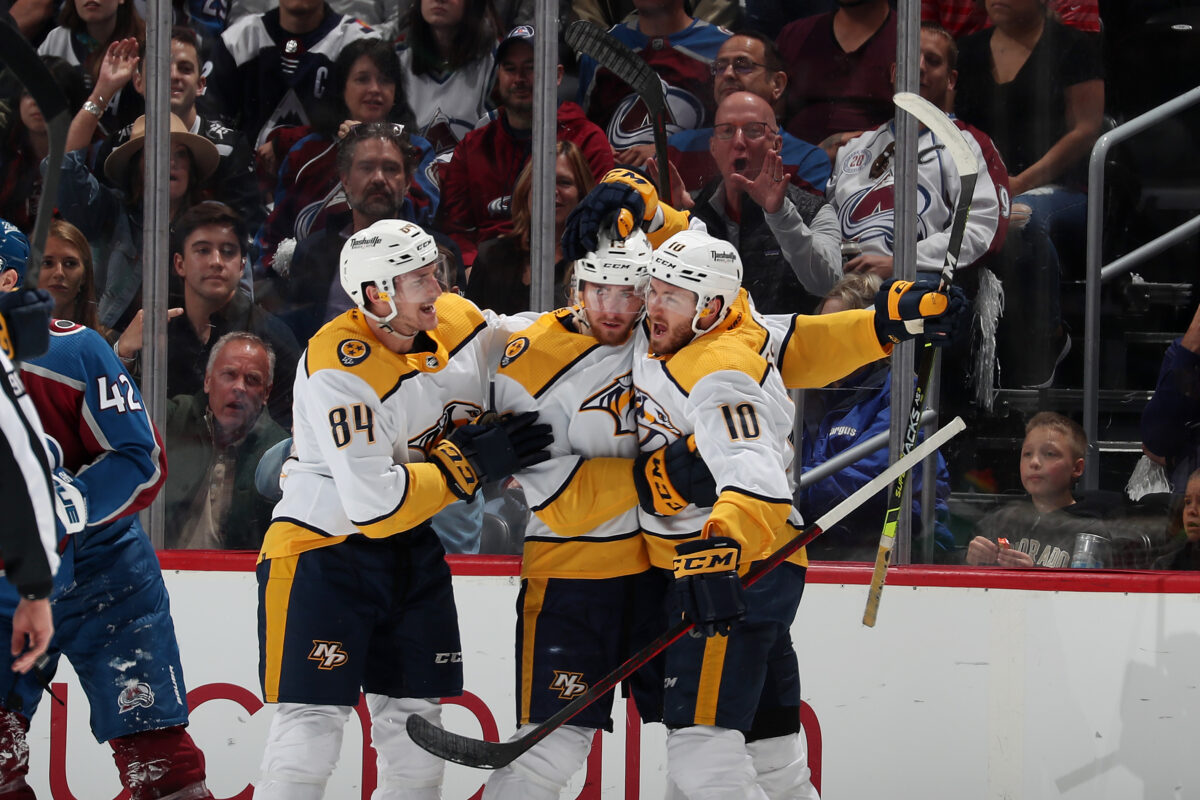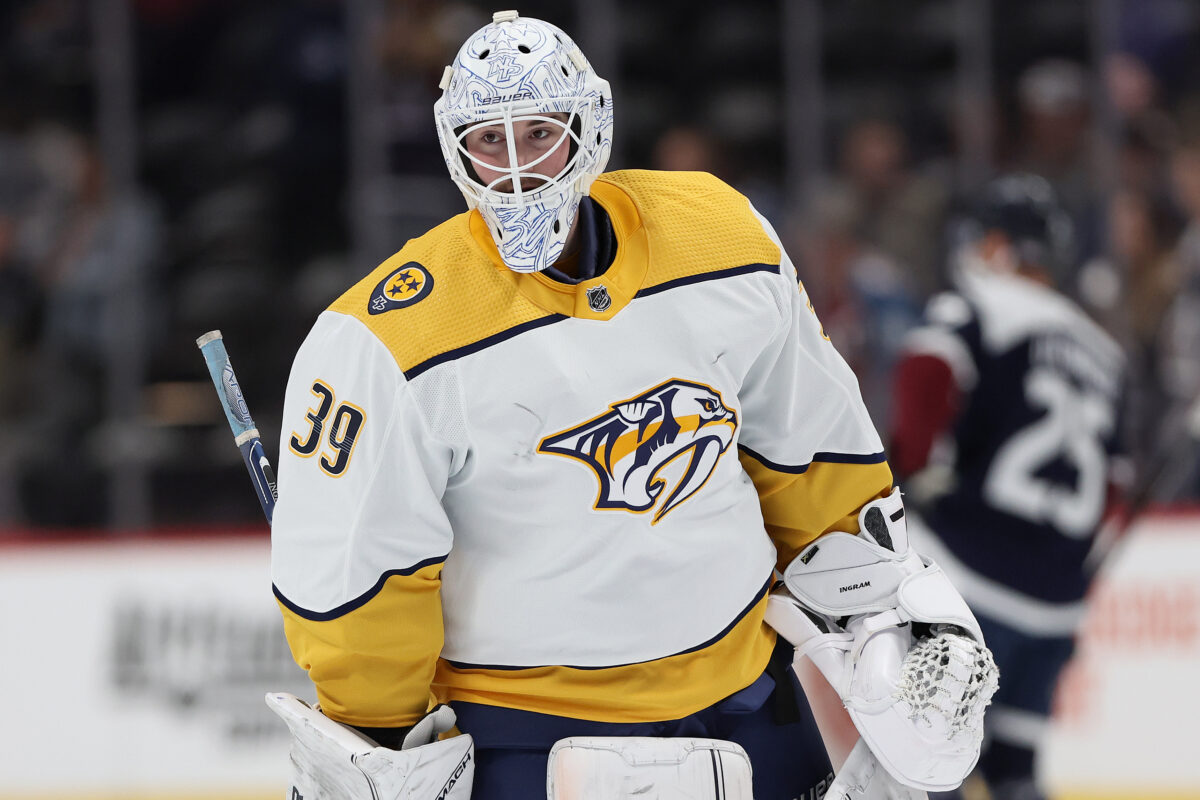For the first time in franchise history, the Nashville Predators were swept in the Stanley Cup Playoffs. Despite a two-goal effort from Yakov Trenin and taking a 3-2 lead, their first of the series, the offense of the Colorado Avalanche proved to be too much for them. The 5-3 loss in Game 4 puts the final stamp on the Predators’ run for the Stanley Cup, but there’s no shame in losing to a team destined to make a deep run in this year’s postseason.
Related: 4 Reasons the Avalanche Will Win the 2022 Stanley Cup
The Predators were never supposed to contend for a playoff spot this season. Players like Matt Duchene and Ryan Johansen were coming off disappointing campaigns and left unprotected, only to go unclaimed by the Seattle Kraken. Pekka Rinne’s retirement opened the door to a new era of goaltending and a certain level of uncertainty about Juuse Saros‘ ability to take the team on his back and become the number-one goaltender they needed him to be. There were more questions than answers, and it didn’t paint a picture of a team that stood a chance.
Fast forward five months later, and a monumental season full of career years and single-season franchise records being broken put all of the doubts to rest. Captain Roman Josi registered 96 points, becoming a finalist for the Norris Trophy, and both Duchene and Filip Forsberg scored 40 goals, a feat never before accomplished by any Nashville player. Saros became an All-Star goaltender, and rookie Tanner Jeannot ended the year with the rookie lead in goals. It may have been a sour end to an otherwise wonderful season, but here’s one last takeaway piece on the Predators’ 2022 Stanley Cup Playoff run.
Decision Time For Predators and Forsberg
At the 3:58 mark of the third period, Forsberg registered his first goal of the series, giving the Predators their first lead in four games. Intercepting a puck in the neutral zone, Forsberg started the play by passing the puck into the offensive zone and finishing it by taking a Mattias Ekholm pass and directing it into the net. It was clear he had one thing in mind, and that was getting on the board. He beaver-slapped his stick, calling for a pass, and made no mistake about it when the puck made its way to him.

Unfortunately, the lead lasted all of five minutes until Colorado took over the period and the game. Despite finally getting production from one of their top goal-scorers, it still wasn’t enough to put the Avalanche away. It now leaves general manager David Poile with a decision to make this offseason. Does he bring Forsberg back at what is estimated to be a generous raise in salary? Beyond his status, the Predators have five restricted free agents, including newly-acquired Cody Glass, as well as players like Trenin and Luke Kunin. Nashville will have about $24 million to play with, and the potential of Forsberg taking a third of that could place Poile in a tough position.
Will Predators’ Herd Line Return?
Trenin’s two goals in Game 4 made the Predators’ third line their most productive one, as he tied Duchene for the team lead in goals. It was also a return to basics for head coach John Hynes, who split the Herd Line up in Game 3 in favour of getting Forsberg going. Jeannot was inserted onto the second line with little results, but the reunion of the third line in Game 4 paid off for a trio that worked so well during the regular season. Although Jeannot’s first taste of playoff hockey ended with one assist in four games, it’s an experience he’ll build on for the future.

The question now remains whether the line will be back for the 2022-23 season or if Poile opts to change things up. Trenin is a restricted free agent while Colton Sissons is signed for four more seasons at a pinch under $3 million per. Last offseason, the Predators off-loaded Viktor Arvidsson and Ryan Ellis to save some cap space and shake things up after a disappointing first-round exit. While the team’s success during the regular season wasn’t something management expected, they’ll still need to make some room if they hope to bring back Forsberg and a few other restricted free agents due for a raise.
It could mean Sissons’ contract may come into consideration. He makes just under $3 million as a third-line centre, but an up-and-comer like Cody Glass, who made great strides with the Milwaukee Admirals this season, could push for a roster spot as soon as next season. Nashville’s top two centers already account for $13 million, and the two top-paid wingers bring that total up to $30 million if Forsberg signs for the speculated $9 million. The cap will become extremely tight and could force Poile to sacrifice some pieces during the offseason.
Ingram Deserves Backup Role Next Season
Taking over the starting role for the Predators, 25-year-old Ingram had tough shoes to fill. With Saros falling to injury right before the start of the playoffs, the team leaned on a goaltender with zero playoff starts. David Rittich did his part to hold his team together in Game 1, but the team collapsed in front of him. Ingram came in and gave Nashville a chance, and in Game 2, he showcased his value.

With Rittich set to become an unrestricted free agent this offseason, they should thank him for his services and let him walk. Ingram makes slightly more than half of what Rittich made, is younger, and made excellent improvements during his time in the American Hockey League with Milwaukee. Backing up a healthy Saros next season, the Predators would have a reliable tandem that can compete against any Western Conference team and cost less in the process.
Yaroslav Askarov arriving in North America will create some competition for starting time with the Admirals, while Tomas Vomacka is under contract for one more season and did relatively well with both the Admirals and the ECHL’s Florida Everblades. Devin Cooley is a restricted free agent, but there’s no reason to let him walk, as the trio of goaltenders would likely make up the minor-league tandem after Ingram secures a backup spot. If that is indeed the plan going forward, the Predators’ future between the pipes is as bright as its ever been.
